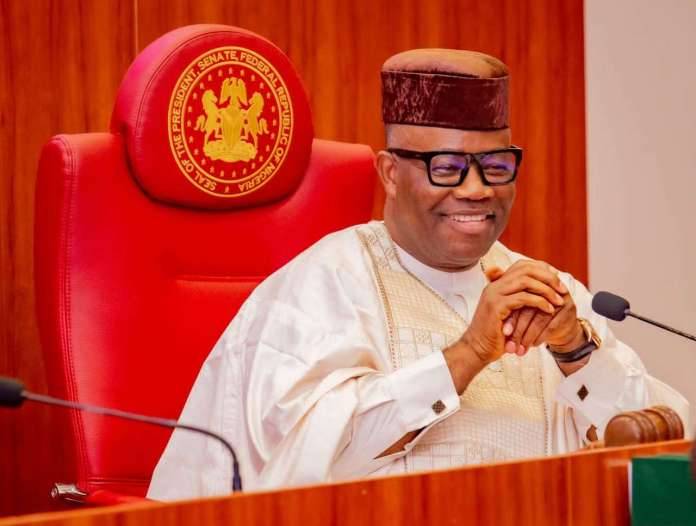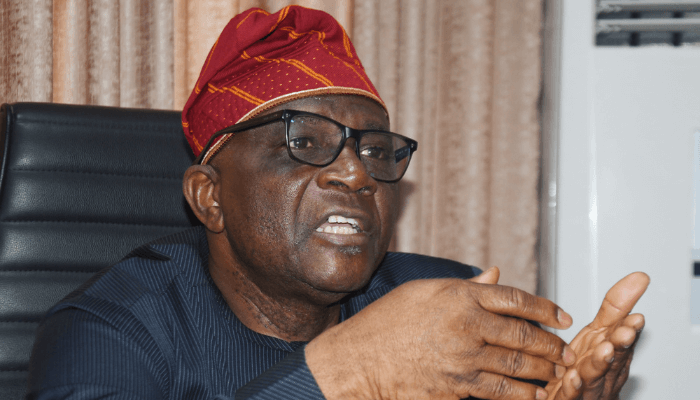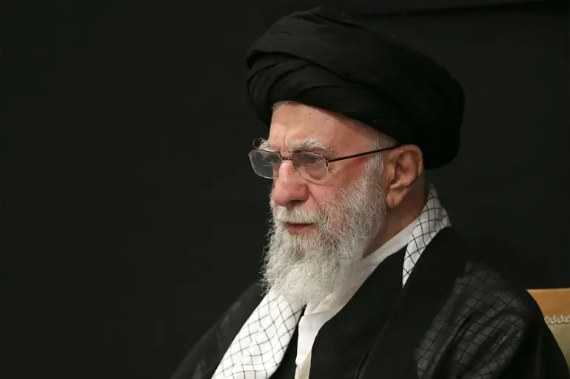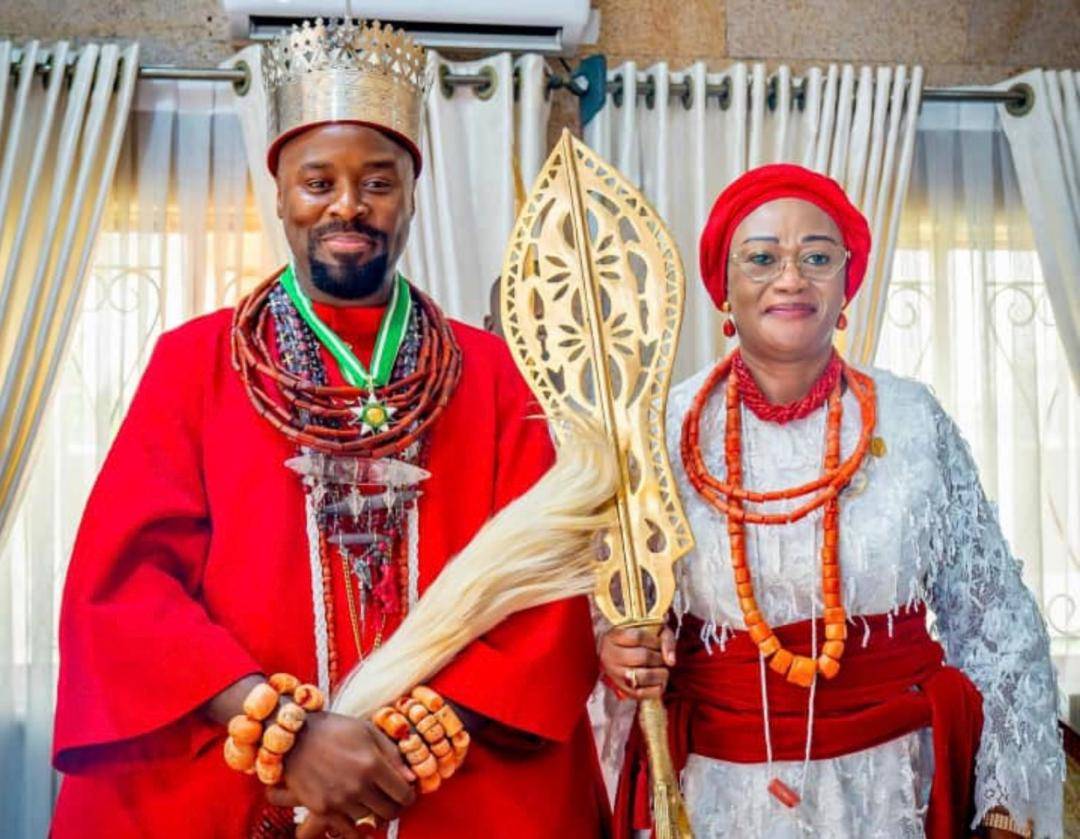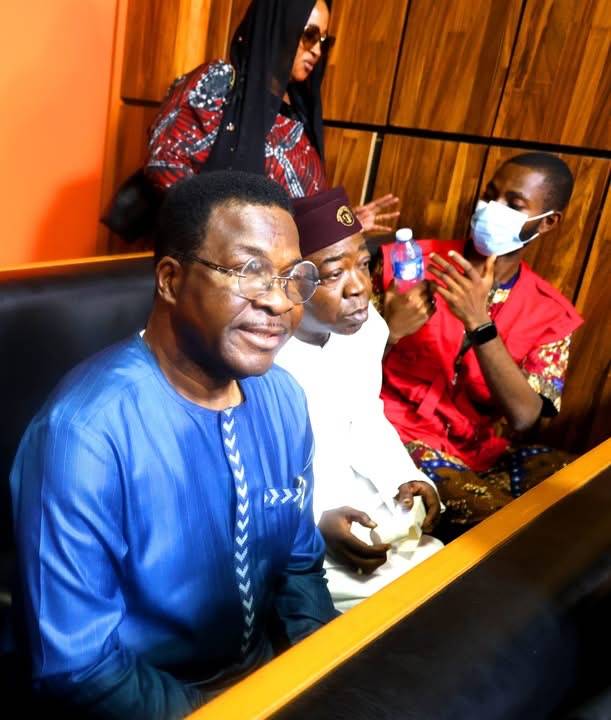In Nigeria’s ever-volatile political theatre, leadership and succession remain the twin engines that either propel governance or grind it to a halt. Even those who say they are not interested in politics are aware that in the fiery, drama-rich political arena, betrayal is never a stranger. Today’s smiling deputy could well be tomorrow’s rebel, and the kneeling protégé of yesteryear might just become the fire-spitting adversary of today.
Across the country, a pattern of political backstabbing has taken root, from Rivers to Edo, Kaduna to Akwa Ibom. What starts as camaraderie ends in cold war. Godfathers turn into godless foes. Succession plans explode in spectacular fashion, often to the detriment of governance and the people.
So, when Senate President Godswill Akpabio issued a warning during the inauguration of the Lagos-Calabar coastal highway, “Do not give power to those who are not prepared for governance,” it landed with the weight of experience, not platitude. And he did not stop there. With the poise of a man who has seen both sides of political loyalty, Akpabio added: “Those who prostrate before you should be watched.”
These are not throwaway lines for the headlines. They are born of hard-won lessons in the political trenches. Akpabio, a two-term governor and now head of the 10th National Assembly, knows how quickly trust can sour and how damaging it can be when leadership is treated like a party favour.
■ The perils of unprepared leadership
All across Nigeria, power is too often handed to the unready. And when the unready become the unsteady, it’s the citizens who suffer as they are left unschooled, unhealthy, and uncared for. Governance falters. Projects stall. Vision is lost. Therefore, Akpabio’s warning is timely: leadership should never be entrusted to those who lack the capacity, clarity, or courage to lead.
In Akwa Ibom, where Akpabio once reigned as governor, the handover to Udom Emmanuel was meant to signal continuity. Instead, astute observers noted a sharp decline in the pace of development. Where Akpabio had been audacious and people-driven, Emmanuel’s style was perceived as aloof and slow-footed. Grand projects gave way to muted ambition.
The Guardian captured the sentiment in a February 2024 editorial entitled: “The Dangers of Unprepared Leadership,” noting that poorly thought-out transitions had become a national epidemic. In state after state, governors hand over to allies rather than achievers, to loyalists rather than leaders. The results are everywhere; unfinished roads, underfunded schools, delayed budgets, broken promises.
And then there is the cultural cost. When governance is stripped of direction, hope itself erodes. Young people tune out. Citizens disengage. Politics becomes theatre without meaning, and politicians end up parroting problems and promises while performing at zero percent.
■ Loyalty, betrayal, and the Nigerian political cycle
To be clear, in Nigerian politics, loyalty is often exaggerated for optics. Kneeling, bowing, extravagant praise; they all play well in public. But, as Akpabio warned, the most theatrical loyalty is often the most dangerous. Political godfathers and protégés routinely fall out. The very people once entrusted with continuity become architects of rupture.
In Edo State, the relationship between former Governor Godwin Obaseki and his former deputy Philip Shaibu descended from harmony to acrimony. What began as a solid partnership devolved into court petitions, power struggles, and bitter public spats. Shaibu, once Obaseki’s defender, became his most vocal internal challenger.
In Kaduna, former Governor Nasir el-Rufai and his successor Uba Sani have been locked in a damaging feud over debt, governance direction, and accusations of sabotage. The governor who once backed Sani now finds himself on the receiving end of fierce criticism. The fallout has paralysed aspects of policy implementation and cast a shadow over Kaduna’s future.
Rivers State offers perhaps the most explosive example. Former Governor Nyesom Wike, once again a Minister in the Federal Executive Council, had handpicked Siminalayi Fubara as his successor. But the relationship quickly soured. Accusations flew. Loyalties shifted. What began as mentorship degenerated into a constitutional crisis, legislative walkouts, and scenes that bordered on anarchy.
Even Akwa Ibom, Akpabio’s own political base, was not immune. His support for Udom Emmanuel did not yield a successor in his mould. Instead, the transition ushered in an era of frosty relations, mutual distrust, and subtle undoing of past policies.
These stories underscore a hard truth: Nigeria’s political class has not yet mastered the art of structured, values-based succession. Instead, it relies on sentiment, symbolism, and shallow loyalty tests.
■ Akpabio’s model: From governor to statesman
Akpabio’s leadership arc offers lessons in both ambition and intentionality. As Governor of Akwa Ibom from 2007 to 2015, he did not merely occupy office, he transformed the space. It is not an exaggeration to say he was not only in power, he was a moving force for the betterment of the people. From free and compulsory education to massive infrastructure drives, his was an administration that visibly shifted the state’s trajectory. Roads, bridges, schools, and hospitals sprang up across the landscape. Julius Berger was brought in to ensure quality, and public confidence soared.
Moreover, what set Akpabio apart was not just the scale of his projects but the clarity of his vision. He governed with the urgency of a man who understood legacy. Today, even critics concede that his time in office marked a golden era in Akwa Ibom’s history.
Now, as Senate President, Akpabio has continued this legacy of intentional leadership. The 10th National Assembly on his watch has prioritised cooperation with the Executive, ensuring swift passage of key legislations, including the timely approval of the national budget and reforms critical to economic revival.
■ A call for deliberate succession planning
Akpabio’s warning to his fellow politicians is therefore not a lament. It is a call to action. Second-term governors must resist the temptation to choose successors based solely on personal comfort. Nigeria’s democracy needs leaders, not lackeys. The practice of handing over power to “those who kneel the lowest” is eroding the very foundation of representative governance.
There is also a broader lesson here about the nature of loyalty. True loyalty is not measured in subservience but in shared vision, competence, and accountability. The successor worth trusting is not the one who flatters but the one who understands the mission and has the capacity to sustain it.
In this light, Akpabio is not simply reflecting on personal experiences. He is offering a governance blueprint that prioritises substance over symbolism.
■ Will politicians learn?
Nigeria stands at a crossroads. Across its states and regions, governance is either evolving or unravelling, depending on who is at the helm. The road to renewal will not be paved by sycophants or scripted endorsements. It will require leaders who prepare successors with care, invest in competence, and insist on vision.
Without equivocation, let it be clearly stated that Senator Godswill Akpabio’s voice matters in this moment, not because he is perfect, but because he is proven. His story is one of learning, rebuilding, and refusing to be sentimental about leadership. He has seen the cost of political betrayal, and he is brave enough to speak about it.
The question is whether Nigeria’s political class will listen to one of their own who is courageous enough to speak the truth to their faces. Or, will they allow the cycle of betrayal, broken promises, and misgovernance to repeat itself over and again?
Only time will tell.
■Mr Ojeifo is publisher and editor-in-chief of THE CONCLAVE online newspaper. E-mail: ojwonderngr@yahoo.com [08034727013]


